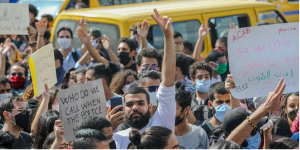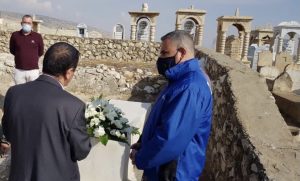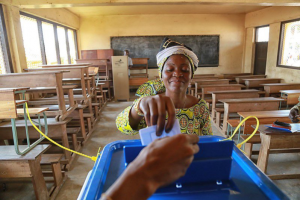By: Molly Graham
Journal of Global Rights and Organizations, Associate Articles Editor
TUNIS, Tunisia – On October 6, 2020, hundreds of LGBTQ+ activists gathered in front of Tunisia’s Parliament to protest draft law Number 25/2015, which would severely limit criminal accountability for the use of force by police and armed forces. Ironically, police attacked and arbitrarily arrested many protesters.

The proposed law would grant security forces legal immunity from prosecution for use of force. The stated purpose of the law is to enhance protection of armed forces, including military, internal security, and customs forces, as well as suppress attacks against institutions, facilities, and equipment that fall under their authorities. The bill would allow courts to enforce long prison sentences to people who reveal broadly defined “national security secrets.”
If passed, the proposed law would affirm security forces in their use of force, and therefore send a disturbing message to marginalized groups, many of whom are already vulnerable to police misconduct, that they will not be protected from police violence. LGBTQ+ folks are particularly afraid that this law may pass.
Consider Ahmed El-Tounsi’s experience. El-Tounsi is a transgender Tunisian man and founder of OutCasts (transgender rights organization). On August 5th, 2020, he and other LGBTQ+ activists were walking near the French embassy, when police approached and asked them for identification. When officers noticed discrepancies between their identification and gender expression, a verbal altercation ensued. The verbal altercation quickly escalated into a physical assault. El-Tounsi and the others attempted to run away, but additional police officers arrived. The officers continued to beat the activists while encouraging bystanders to join in.
El-Tounsi reported the officers shouted to bystanders, “Kill them! They are sodomites!” Bystanders followed the activists into an alleyway and continued to beat them. The bystanders took their phones and deleted video evidence of the encounter. El-Tounsi commented, “It felt like our entire country beat us that day.”
El-Tounsi went to Habib Thameur Hospital but was denied treatment based on his gender expression. He then went to Charles Nicole Hospital, where administrative staff refused to help him, and referred him to a woman’s hospital, despite his self-identification as a man. Activists took El-Tounsi to Wassila Bourguiba Hospital, which specializes in women’s health, where they refused to treat him because El-Tounsi “[looked] like a man.”
Activists filed a complaint, seeking to hold police and embassy officers accountable. Several lawyers reported the request to review camera footage near the embassy was dismissed. This footage would show the officers’ role in the attack. The lawyers appealed, and are now awaiting a decision.

Seif Ayadi, a social worker at Damj, a Tunis LGBTQ+ rights group, was present at El-Tounsi’s attack in August and was also one of the activists beaten and detained at the protest in October. Ayadi has spoken out about the increasing police violence against LGBTQ+ people in Tunisia, as well as the overwhelming dangers of the proposed bill. Ayadi reported in 2020 that Damj provided legal support for LGBTQ+ people at police stations in 75 cases and responded to 98 requests for legal consultations. These statistics are five times higher than Damj recorded in 2019.
Currently, there is no legal recognition for transgender people. Many face systemic discrimination, especially when confronted by the incongruence between official identification documents and gender expression. Trans people are often arbitrarily arrested and experience abusive police protocols leading to prosecution. Tunisia should decriminalize same-sex conduct and protect LGBTQ+ people from discrimination and police violence, rather than granting increased power to police.
For further information, please see:
Human Rights Watch – “Kill Them, They Are Sodomites” – 10 Dec. 2020
Human Rights Watch – Draft Law Could Return Tunisia to a Police State – 24 July 2017
Inkyfada – Draft Law Against Attacks on the Armed Forces: Protection or Immunity – 28 Apr. 2015



